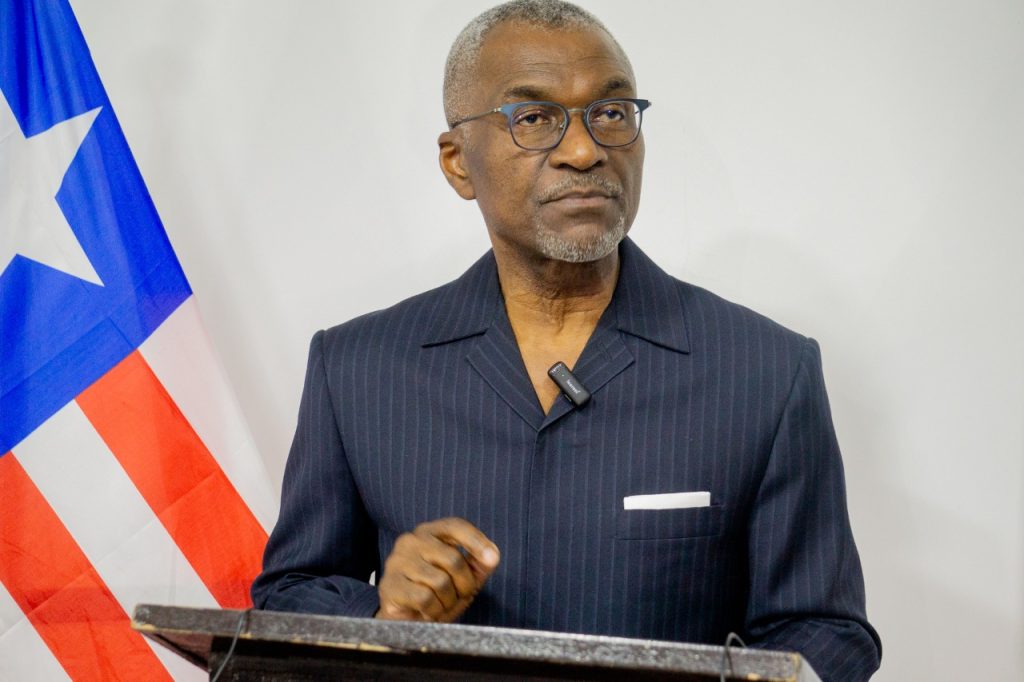The political landscape in Liberia is embroiled in controversy surrounding the leadership of the House of Representatives, with former presidential candidate Alexander Cummings adding his voice to the growing chorus urging President Boakai to uphold a Supreme Court ruling. The crux of the matter revolves around the contested removal of House Speaker J. Fonati Koffa and the subsequent installation of Richard N. Koon as “Regime Speaker” by a faction within the House. Cummings, echoing the Supreme Court’s position, emphasizes the legal framework governing such procedures: 37 votes are required for election, while 49 are necessary for removal. He argues that the “majority bloc” backing Koon lacked the requisite number of votes, rendering their actions, and the Executive branch’s support thereof, legally unsound.
Cummings advocates for due process, insisting that if the bloc possesses the required votes, they should initiate proper removal procedures. He contends that their attempts to circumvent the established rules underscore the flawed nature of their actions. While acknowledging Speaker Koffa’s apparent lack of majority political support within the House, Cummings frames this as a political issue, distinct from the legal questions at hand. He criticizes President Boakai’s failure to broker a political solution, suggesting that while the Speaker seems receptive to dialogue, the “bloc”, emboldened by presidential backing, remains resistant.
The Supreme Court’s recent ruling reinforces its earlier decision, declaring the removal of Speaker Koffa “ultra vires” – a legal term indicating an action taken without the necessary authority. The Court reaffirmed its December 6, 2024, ruling, which deemed the majority bloc’s actions invalid. Despite seeking clarity on the Court’s opinion, the bloc has failed to comply with the ruling, further escalating the tension.
Cummings contends that the legal and political dimensions of the conflict are being deliberately conflated, leading to disarray on the national stage and projecting an image of presidential indecisiveness. He criticizes President Boakai’s failure to unequivocally declare his commitment to upholding the Supreme Court’s decision, viewing this as a missed opportunity to resolve the impasse. Despite this, Cummings maintains hope for a resolution, urging behind-the-scenes discussions to achieve a legally and politically sound outcome. He underscores the paramount importance of adhering to the rule of law, emphasizing that disregarding it is not an option.
The situation reveals a deep-seated power struggle within Liberia’s political system, raising concerns about the separation of powers and the integrity of democratic processes. The President’s perceived hesitancy to enforce the Supreme Court’s ruling raises questions about his commitment to the rule of law, potentially undermining the judiciary’s authority. The “majority bloc’s” defiance of the Court’s decision further exacerbates the crisis, creating uncertainty and instability within the House of Representatives.
Ultimately, the resolution of this impasse hinges on President Boakai’s willingness to uphold the Supreme Court’s ruling and exert his influence to broker a political compromise that respects the legal framework. Failure to do so risks prolonging the crisis, undermining democratic institutions, and potentially escalating political tensions within Liberia. The international community will be closely watching how this situation unfolds, as it serves as a critical test of Liberia’s commitment to democratic principles and the rule of law.














